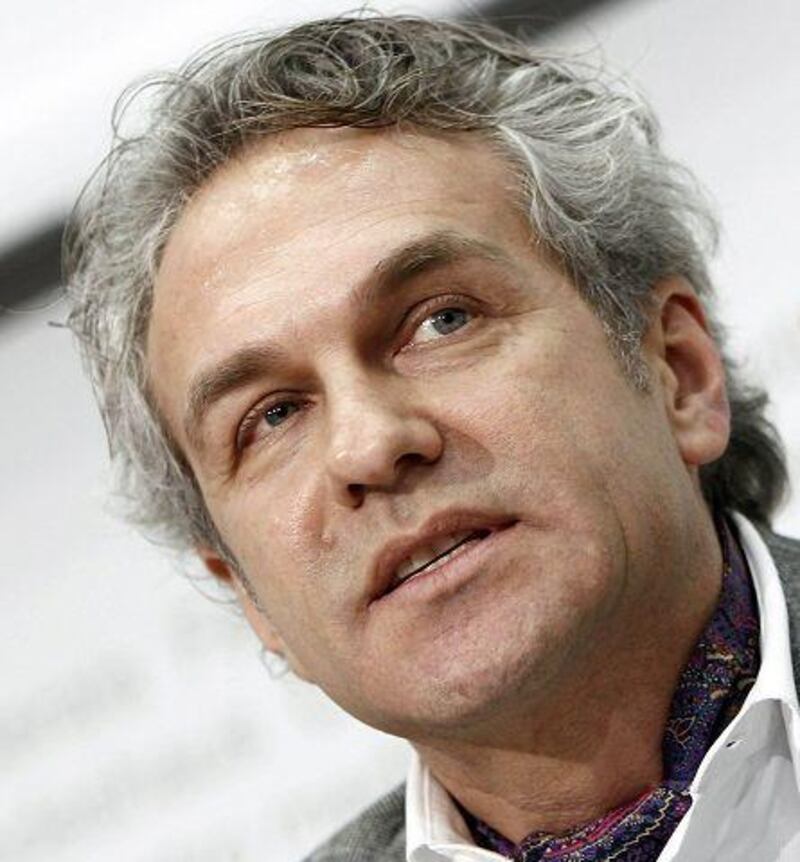BERLIN // Swiss cats and dogs and all other vertebrates will be entitled to a lawyer in animal abuse cases if the nation backs a proposal to introduce special attorneys for them in a referendum today. The initiative, launched by animal-rights campaigners, is aimed at ensuring that Switzerland's animal protection laws, already the strictest in the world, are enforced more rigorously. If voters back it, all the Swiss cantons will be required to appoint animal attorneys to represent clients ranging from budgerigars to elephants in cruelty prosecutions.
"Animals are God's creatures and they all have a right to dignity," said the world's only animal lawyer, Antoine Goetschel, 51, who handles cruelty and negligence cases in the canton of Zurich. "This is about strengthening the legal status of animals in criminal prosecutions. I hope that this referendum will send out a signal to the rest of the world." Zurich, one of 26 Swiss cantons, voted to create the office of animal lawyer in 1992. All cantons will have to follow suit if the initiative is accepted today. As some cantons would presumably share lawyers, Switzerland would probably get a total of 10 to 15 of them.
"Most animal abuse cases are perpetrated by the owners. They can defend themselves and hire a lawyer, but the victim can't," said Mr Goetschel, who has the right to appeal against court rulings. The vote, made possible by Switzerland's unique system of direct democracy in which a referendum can be held on any initiative that gets at least 50,000 signatures, has attracted international attention, but it is unclear whether other nations would follow suit.
Germany, like Switzerland, no longer treats animals as objects under the law and instead classifies them as creatures, but German animal protection officers have little influence in legal cases. Opinion polls indicate the vote will be close, even though it has the backing of leading politicians from most of the major parties and from a host of celebrities. Its opponents include hunters, farmers and pet breeders who say it will generate unnecessary costs and bureaucracy. Some politicians have expressed concern that it might foster a culture of denunciation among neighbours by encouraging people to take legal action whenever they see someone smacking a dog.
Switzerland, which founded the Red Cross movement, has long prided itself on its humanitarian engagement, and its animal protection laws are unrivalled. Under new provisions introduced in 2008, pet owners are forbidden to hold single budgerigars or guinea pigs because they suffer if they don't have a partner. Dog owners are required to take a training course to learn how to communicate with their pets.
From 2013, horses, goats and sheep must be kept in constant eye contact with other members of their species. Cats must live in a room no smaller than seven square metres, must be given ample opportunity to climb, scrape with their claws and play, are entitled to have access to elevated areas where they can rest, and have a legal right to their own toilet. Strict rules govern the water quality, temperature and oxygen content of fish aquariums. Switzerland is even thinking about protecting the rights of plants.
But the laws do not help if they are not enforced, said the Swiss Animal Protection Society, which introduced the initiative. It said punishments were still far too lenient given that the law allows fines of up to 20,000 Swiss francs. In 2008, 90 per cent of all abuse cases were processed without court hearings and usually resulted in fines of just a few hundred francs. Mr Goetschel, a vegetarian, said one of his most harrowing cases was a woman who kept 149 cats in her home, many of them so ill and neglected that they had to be put down. She was fined a total of 3,500 francs. A current case involves the stabbing of five horses, one of which died.
He has never had a four-legged client in court with him. "I work with photos. The animals concerned are usually injured or dead." He suffered a defeat in February in a case involving a dead 22-pound pike. A court acquitted an angler charged with cruelty because the fish had spent 10 minutes suffocating in its struggle with the fishing line. As 50 fishermen glared at him from the public gallery, Mr Goetschel likened its long struggle to the slow drowning of a cat. He lost the case, but given the extensive media attention, Swiss anglers may in future be tempted to kill their catches quickly to avoid trouble.
"We have to ensure that the law passed by parliament and backed by the people is implemented properly to protect the weakest in our society," said Mr Goetschel. "I hope that I won't remain the world's only animal lawyer." foreign.desk@thenational.ae






